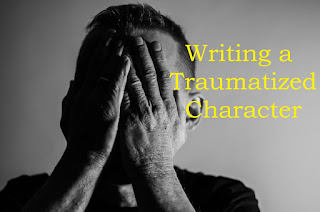So, I came to clarify some aspects of insomnia that should hopefully show you how to accomplish the task of writing a character with this issue. So, LET US BEGIN THE JOURNEY!!!
1) TRAITS THAT COME WITH INSOMNIA!!!
So, I've compiled a list of symptoms(I guess you could call them traits?) for you to add to your character's life!
- Constant Exhaustion
- Tension Headaches
- Dizziness
- Lack of Focus
- Difficulty in Falling and/or Staying Asleep (obviously)
- Paranoia/Feeling On Edge (no sleep really messes with your mind dudes)
- Intestinal Distress
- Emotional Control Issues/No Emotion (Basically either crankiness or just done with everything)
- Lack of Energy
- Increase or Decrease in Appetite
- Getting Sick Easily
- Hard Time Making Decisions
- Bad Memory
- Easily Stressed
(NOTE:
Basically, having characters point some of these things out about your insomniac, your insomniac causing a scene based on these, and just having it as an underlining tone in your story are all ways to work this into your story. )
(NOTE:
In Consideration to the Emotional Control Issues/No Emotion, Depression, Anxiety, and, as I stated, Paranoia, are all within that range to add to your character on whatever scale you should choose. )
In Consideration to the Emotional Control Issues/No Emotion, Depression, Anxiety, and, as I stated, Paranoia, are all within that range to add to your character on whatever scale you should choose. )
2: NIGHTS FOR INSOMNIACS
Ok, so you know those people at sleepovers who are thinking up the most random questions or talking to themselves in movies/tv shows/animes? Yeah, that's certainly one type of insomniac or someone who just thinks too much.
Nights could usually be pretty long, and mostly full of sluggish and random thoughts. It can basically be broken down to being too tired to do anything, including going to the blissfulness of sleep.
Of course, let's not forget the nights where your character could be doing literally every activity that comes to mind. Cooking, Cleaning, Gaming, etc. and literally alternating every single one at concerning attention span rates.
(NOTE: Slamming head against objects is another way to spend restless nights)
3) DAYTIME FOR INSOMNIACS:
Daytime isn't particularly a great time either for insomniacs, as exhaustion comes quite easily. Crankiness or lack of emotion are also typical traits to attend throughout the day for someone who hadn't slept well.
I hope this was of at least a little use, and as always, good luck loves!
~Rey Brooks
3) DAYTIME FOR INSOMNIACS:
Daytime isn't particularly a great time either for insomniacs, as exhaustion comes quite easily. Crankiness or lack of emotion are also typical traits to attend throughout the day for someone who hadn't slept well.
I hope this was of at least a little use, and as always, good luck loves!
~Rey Brooks












